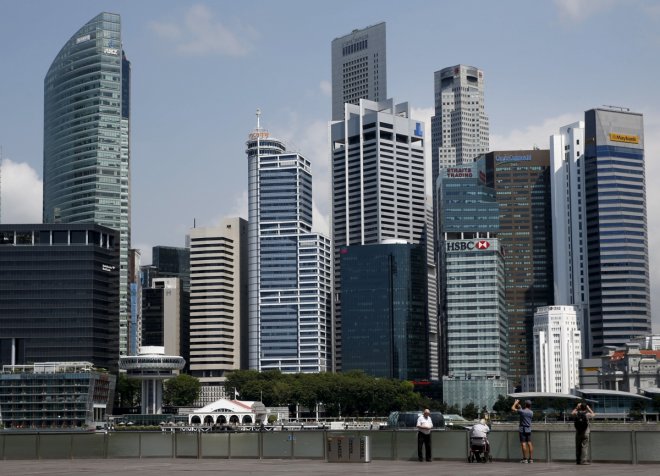
Private sector business conditions eased in Singapore and Hong Kong and both the economies saw pessimistic outlook for the 12-month period ahead, according to the PMI data released by IHS Markit on Friday (3 Feb)
The headline Nikkei Singapore Purchasing Managers' Index dropped to a three-month low of 51.6 in January, its lowest in three month, and down from 52.0 in December.
The Hong Kong index fell below the 50-mark to 49.9 from 50.3, signalling that operating conditions in the private sector have broadly stagnated.
Singapore
The January data implied that the domestic market contributed a larger share to growth in new work, as the expansion in new export orders eased substantially from December, mainly from the US and Europe, the research firm said.
At the same time, staffing rose at the fastest rate on record in the sector helped by sustained expansions in output activity and new business inflows. There was evidence of higher permanent and part-time staff head counts.
On the prices front, Singaporean private sector firms continued to face rising costs, leading to the sharpest rate of increase on record for prices charged IHS Markit said.
The rate of increase in overall cost burdens was the steepest in just over three years, lifted by surging costs for raw materials, such as steel. Salary rises also contributed to higher costs.
The research firm also said that it was first time in the survey history that Singapore's private sector businesses were pessimistic about output for the year ahead.
Analysts at IHS Markit have warned about rising inflationary pressures and challenges to economic growth.
"Singaporean consumers should be concerned about rising inflationary pressures. Prices for Singapore's products and services have become more and more expensive as firms passed on higher costs to consumers," said Bernard Aw, Economist at IHS Markit.
"If new business from abroad slows or even decline in the months ahead amid growing uncertainty about global trade policy, Singapore's economic growth could be affected."
Hong Kong
Demand for Hong Kong's goods and services continued to fall in January. Both new orders and output have been declining since March 2015, and the decline has become slightly faster.
It was not only weak domestic demand that has affected Hong Kong but also new business from abroad continued to shrink as a stronger currency eroded its competitiveness.
Similarly, new work inflows from China were down for the thirtieth straight month, IHS Markit noted. Latest data showed a decrease in the volume of incomplete business for the twenty-third month in succession.
On the staffing front, a number of firms added to staff numbers despite spare capacity and weak client demand, although the rate of overall employment growth was marginal, the survey showed.
Firms continued to face rising price pressures with the total input costs rising for the seventh consecutive month, led by higher prices for raw materials and wage growth.
Meanwhile, companies remained pessimistic about output in the year ahead, warranting more supportive measures from authorities.
"Overall, Hong Kong businesses remained pessimistic about the 12-month outlook for output, as reflected in our new-launched Future Output Index," said Bernard Aw, Economist at IHS Markit.
"Unless planned budgetary measures help to boost growth, policymakers may need to consider more fiscal stimulus."








